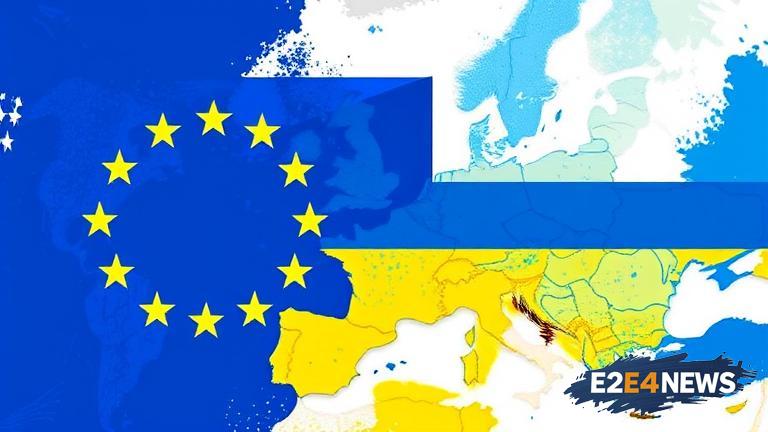The European Union’s potential expansion to include Ukraine has sparked concerns among some member states, with Hungarian Prime Minister Viktor Orban being the latest to voice his reservations. Orban warned that Ukraine’s accession could bring war to the EU, citing the ongoing conflict between Ukraine and Russia. The Hungarian leader’s comments come as the EU considers Ukraine’s bid to join the bloc, with the European Commission set to deliver its opinion on the matter in the coming weeks. Ukraine’s President Volodymyr Zelensky has been pushing for EU membership, seeing it as a way to strengthen his country’s ties with the West and gain greater security guarantees. However, not all EU member states are convinced that Ukraine’s accession is a good idea, with some citing concerns over the country’s corruption and economic stability. Orban’s comments reflect a broader skepticism among some EU member states, who fear that Ukraine’s accession could lead to a destabilization of the region. The EU has been providing significant financial and military aid to Ukraine since the start of the conflict with Russia, but some member states are wary of taking on additional security commitments. The European Commission has said that Ukraine’s accession will depend on the country’s ability to meet the EU’s membership criteria, including the rule of law, human rights, and economic stability. Ukraine has made significant progress in recent years, but still faces significant challenges in these areas. The EU’s enlargement commissioner, Oliver Varhelyi, has said that the bloc will take a ‘merit-based’ approach to Ukraine’s accession, meaning that the country will need to demonstrate its commitment to EU values and principles. Despite the challenges, many EU member states see Ukraine’s accession as a strategic priority, given the country’s location on the EU’s eastern border and its potential to serve as a buffer against Russian influence. The US has also been supportive of Ukraine’s EU bid, seeing it as a way to strengthen the country’s ties with the West and promote stability in the region. However, Russia has been strongly opposed to Ukraine’s accession, seeing it as a threat to its own influence in the region. The EU’s decision on Ukraine’s accession will have significant implications for the region, and will likely be the subject of intense debate in the coming months. As the EU considers Ukraine’s bid, it will need to weigh the potential benefits of expansion against the potential risks and challenges. The EU’s ability to absorb new members and promote stability in the region will be put to the test, and the outcome is far from certain. In the meantime, Ukraine will need to continue to demonstrate its commitment to EU values and principles, and work to address the significant challenges it still faces. The EU’s decision on Ukraine’s accession will be a major test of the bloc’s ability to promote stability and security in the region, and will have significant implications for the future of European integration.
